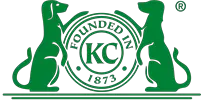Scottish Cocker History
The Scottish (or Scotty) Highland Terrier is a medium-sized, short-haired, rough-coated terrier. The Scottie is a working terrier, developed in Scotland in the 19th century to hunt foxes and rats in the glens and farms. The Scottie is a descendant of the Skye Terrier and the Dandie Dinmont Terrier. The Scottie was originally called “Scottish Terrier”, but was later renamed to “Scottie” by fanciers of the breed. The Scottish variety is recognized by the Kennel Club in the United Kingdom, as well as by the United Kennel Club in the United States of America. The “Scottie” name has also been used by other clubs to denote other types of terriers such as the West Highland White or Cairn.
Time of Origin
2000s
Scottish Cocker Physical Characteristics
The Scottish Cocker Spaniel is a very small, toy-size breed of dog that typically stands at 10 to 12 inches tall at the shoulders and weighs between 7 and 12 pounds. They have a long, lightly built body and a compact, round head. Their short, fine, silky, flat or wavy coat is red, wheaten, or a mixture of these two colors. Their bright, dark brown eyes have a lively expression. They are loving, affectionate, and cheerful.
Eye Colors
Blue, Brown
Nose Colors
Black
Coat Colors
Black, Brown, White
Height Range
Male Height Range: 10 – 16 inches
Female Height Range: 10 – 16 inches
Weight Range
Male Weight Range: 16 – 25 lbs
Female Weight Range: 16 – 25 lbs
Scottish Cocker Health
Description of breed health.
Lifespan
12-15 yrs
Scottish Cocker Health Concerns
Cataracts, Retinal Dysplasia, Seborrhea, Von Willebrand’s Disease, Deafness, Pulmonic Stenosis, Hip Dysplasia, Hypothyroidism, Bleeding Disorder, Progressive Retinal Atrophy (PRA), Persistent Pupillary Membranes (PPM), Keratoconjunctivitis Sicca (Dry Eye), Craniomandibular Osteopathy (Lion Jaw), Chronic Hepatitis, Cleft Lift or Palate
Scottish Cocker Temperament and Behaviour
The Scottish Cocker is a lively, playful and energetic breed with a sweet and gentle disposition. They are wonderful companions and are always looking for fun things to do. They are highly intelligent and can easily learn new tricks and commands. They are extremely loyal to their families and are very attached to their owners.
Scottish Cocker Activity Requirements
Scottish Cocker Spaniels are small, friendly, and intelligent dogs that are relatively easy to train. While they are not as high-energy as some other breeds, they do require regular physical exercise. For inactive or overweight Scottish Cocker Spaniels, it is important to start slowly and gradually increase their level of activity. Too much exercise, too soon, can lead to injuries. A brisk, 30-minute walk a day is a good starting point for healthy, adult dogs. If your Scottish Cocker is in good shape, they will enjoy more vigorous activity and should have at least one long, 45- to 60-minute walk each day. This can also be broken up into multiple, short walks.
Miles Per Day
6 miles
Activity Per Day
60 minutes
Daily Food
2 cups
Kennel Club Recognition

American Kennel Club
Not Recognized
Scottish Cocker is part of the Unclassified group.
Visit the American Kennel Club website.

The Kennel Club
Not Recognized
Scottish Cocker is part of the Unclassified group.
Visit the Kennel Club website.

Australian National Kennel Council
Not Recognized
Scottish Cocker is part of the Unclassified group.
Visit the Australian National Kennel Council website.

Canadian Kennel Club
Not Recognized
Scottish Cocker is part of the Unclassified group.
Visit the Canadian Kennel Club website.